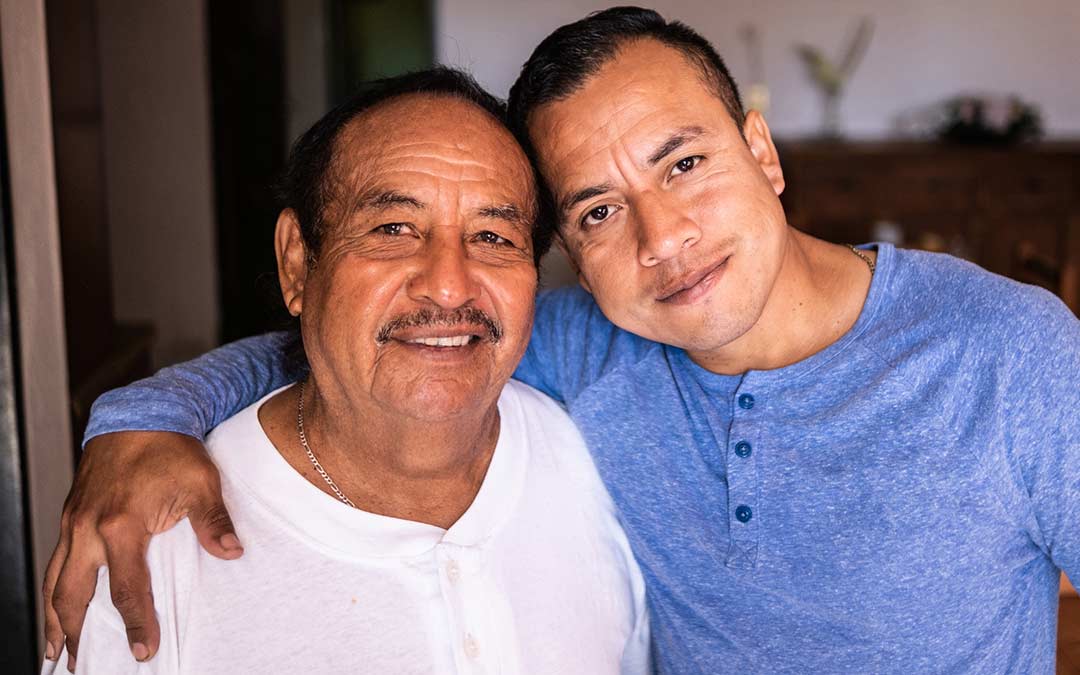By Sara Sanders, PhD, MSW
Studies have shown that caregivers of individuals with Alzheimer’s disease are at an increased risk of mental and physical problems as a result of the strain that accompanies this role. Researchers have focused on the stress, sense of burden, and depression that Alzheimer’s caregivers experience. Little reference has been made to grief and loss reported by caregivers.
What makes Alzheimer’s caregivers sense of loss different from others?
Caregivers of people with Alzheimer’s disease experience losses over a long period of time, some up to 20 years. Many of these losses are not recognized or addressed, which creates what we call “disenfranchised grief.”
Caregivers of people with Alzheimer’s disease and dementia experience loss, starting with the first symptom of the disease. Caregivers commonly experience losses in the areas of communication, socialization, shared memories and the future, intimacy, roles and relationships, and a sense of normalcy. These losses stem from the cognitive changes that occur with dementia.
Many caregivers are so focused on the tasks of care giving that they do not recognize these losses in their own life or the impact that unaddressed grief may be having on them.
Pauline Boss coined the term ambiguous loss to describe losses that possess some degree of uncertainty and that force people to question their status with the lost object. Caregivers of individuals with dementia are faced with the fact that the person with dementia is physically present, but psychologically absent. The normal or standard within the relationship has changed. Caregivers may say, “This is not my husband even though he looks like my husband” or “My mother would never act like this.”
How does this sense of loss change throughout the disease?
Every caregiver is different and will respond to the losses associated with the disease in unique ways. Many caregivers do not associate what they are experiencing as loss; instead, they lump it into the broad categories of burden, depression, and stress.
But research suggests that grief is high following the diagnosis and declines during the second through fourth years of the disease. After the fourth year, caregivers’ grief tends to increase and is highest during the final stages of the disease. As the severity of the disease increases, the grief of caregivers also tends to become more severe.
What’s the difference between depression and grief?
While the symptoms of grief and depression can be quite similar, there are important distinctions.
First, grief has a temporary impact on the individual, while depression can lost longer periods of time. This is not to diminish the impact of grief or the fact that individuals are forever changed by the loss. But over time, a grieving person usually is able to experience many qualities of their life pre-loss over time, while individuals with depression may have their overall level of functioning impacted to a greater extent for a longer period of time.
Second, grieving individuals are able to attribute their feelings of sadness and hopelessness to the loss, while individuals who are experiencing depression may not be able to identify the root causes of their feelings and mental health.
Third, grieving individuals are still able to enjoy and find satisfaction in certain aspects of their lives. While finding these activities may be challenging, once they are identified they are found to be helpful. Individuals who are depression may experience difficulty finding joy and satisfaction in any aspect of their lives.
Finally, an individual with depression may experience significant relief from pharmacological treatments. While these treatments may temporarily help a person with grief, they will not take away feelings of grief. For some individuals it actually prevents the grief work that is needed to occur, only prolonging grief reactions.





